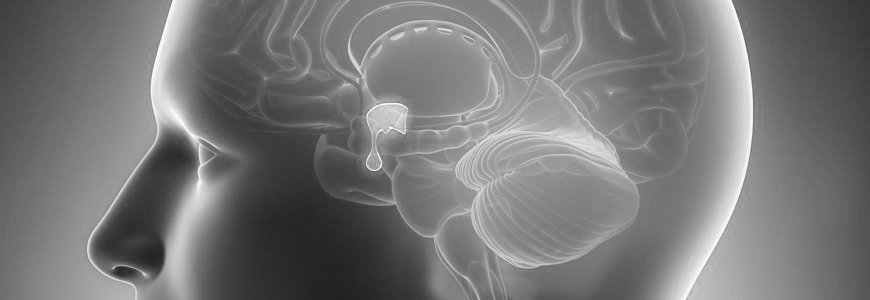
Mass General Brigham Pituitary Center of Excellence
What We Do
The MGB Pituitary Center of Excellence offers a multidisciplinary approach to patients with pituitary and hypothalamic disorders, including Cushing’s disease, acromegaly, prolactinomas, and nonfunctioning pituitary tumors. We provide comprehensive, state-of-the-art diagnostic evaluations and individualized treatment plans formulated by a dedicated, coordinated team of neuroendocrinologists, pituitary neurosurgeons, and specialized radiation oncologists.
What We Treat
For more than 40 years, the MGB Pituitary Center of Excellence has provided a multidisciplinary approach to patients with pituitary and hypothalamic disorders. Our specialists diagnose and manage the full range of neuroendocrine conditions.
Our Team
Our neurosurgeons and neuroendocrinologists help patients and referring physicians around the world, working on a case-by-case basis to provide state-of-the-art care. We work in close collaboration with radiation oncologists, neuro-ophthalmologists, psychiatrists, and other specialists as needed.
Get in Touch
Whether you’re a patient looking for a consultation, or a physician interested in hearing more about what we do, please contact us.
Featured Research
Oxytocin Deficiency: A New Syndrome
In this paper published in Endocrine Reviews, Drs. Elizabeth A. Lawson (MGH neuroendocrinologist and principal investigator) and Anna Aulinas (former MGH postdoctoral fellow) summarize the current knowledge of oxytocin deficiency and implications for patients who have hypothalamic or pituitary disease. The MGB Pituitary Center is at the forefront of oxytocin deficiency research. We identified oxytocin deficiency in several conditions, including men with arginine vasopressin deficiency (formerly known as diabetes insipidus), associated with worse mental health. Our current studies focus on characterizing oxytocin deficiency in women with hypopituitarism, developing ways to diagnose oxytocin deficiency, and testing oxytocin replacement strategies.
Elizabeth A. Lawson, MD MMSc
Medical Management of Cushing’s Disease
Drs. Lisa B. Nachtigall (MGH) and Ursula B. Kaiser (BWH), both neuroendocrinologists, contributed to the assessment of international consensus guidelines for the medical management of Cushing’s disease at Pituitary Tumor Centers of Excellence, which includes both MGH and BWH. Despite its rare occurrence, Cushing’s disease can be associated with hypertension, obesity, lipid disorders, atherosclerosis, hypercoagulability, osteoporosis, diabetes mellitus, and immune and growth suppression, making effective medical treatment critical for those not cured surgically. Overall, the median control rate in patients with Cushing’s disease receiving medical treatment was 75%, highlighting the effectiveness of this option. Medications such as metyrapone and ketoconazole, which inhibit adrenal cortisol production, were the most commonly used medications, followed by pasireotide, which can inhibit the secretion of pituitary adrenocorticotropic hormone (ACTH) by pituitary tumors.
Lisa B. Nachtigall, MD
Ursula B. Kaiser, MD
Genetic Alterations in Pituitary Tumors
In this paper, published in Journal of the European Society, Dr. Ana Paula Abreu (a neuroendocrinologist at BWH and the principal investigator), Dr. Ticiana Paes (former research fellow at BWH), Dr. Dipika Mohan (Internal Medicine resident at Washington University), and their co-authors explore genetic alterations—specifically mutations and copy number changes—that may drive the formation and progression of pituitary tumors.
While pituitary adenomas are among the most common intracranial tumors, their underlying molecular mechanisms remain incompletely understood. This study highlights the role of tumor-specific genetic events in tumor development and proposes that genomic instability may contribute to tumorigenesis. The authors also demonstrate how the institution’s custom gene panels can play a key role in uncovering the genetic basis of pituitary tumors.
Dr. Abreu’s research is dedicated to identifying genetic causes of pituitary tumor formation. By leveraging next-generation sequencing, her work has advanced our understanding of the pathogenesis and clinical behavior of these tumors, with the ultimate goal of enabling more personalized treatment strategies.
Ana P. Abreu Metzger, MD PhD
Diagnosis of Oxytocin Deficiency
In this paper published in The Journal of Clinical Endocrinology & Metabolism, Drs. Wei Lin (visiting scholar, BWH), Timothy Smith (neurosurgeon, BWH), and Le Min (neuroendocrinologist and principal investigator, BWH), together with their coauthors, developed a novel machine‑learning model to predict resistance to first‑generation somatostatin analogues in patients with acromegaly. Medical therapy with octreotide and lanreotide is often used when surgery is incomplete or not feasible, yet only about half of patients achieve biochemical control with these agents. Alternative treatments—such as second‑generation somatostatin analogues, growth‑hormone receptor antagonists, and dopamine agonists—are available but carry different efficacy and cost profiles. By integrating clinical, biochemical, and imaging variables, the authors created and internally validated a user‑friendly calculator that effectively identifies individuals at high risk of treatment failure, enabling more personalized therapeutic decision‑making.
Dr. Min and colleagues are now planning prospective studies to validate the model in independent cohorts and to refine its predictive algorithm. Their ongoing work aims to ensure the tool’s generalizability across diverse clinical settings and to assess its impact on treatment selection, patient outcomes, and health‑economic metrics.
In this paper published in the European Journal of Endocrinology, Drs. Francesca Galbiati (BWH/MGH clinical and research endocrine fellow), Anna Aulinas (former MGH postdoctoral fellow), Elizabeth A. Lawson (MGH neuroendocrinologist and principal investigator) and colleagues investigated the use of intravenous kisspeptin (the primary trigger for reproductive function) as a possible diagnostic test to identify oxytocin deficiency. Oxytocin levels consistently increased 10 minutes after kisspeptin administration in healthy men, but not in women. These findings suggest that kisspeptin is a candidate for development of a diagnostic test for oxytocin deficiency in men. Dr. Lawson and colleagues are investigating several other possible diagnostic strategies for detecting oxytocin deficiency in both sexes. This could pave the way toward oxytocin replacement in patients with pituitary disease.
Francesca Galbiati, MD
Elizabeth A. Lawson, MD MMSc
Machine Learning–Based Prediction of First‑Generation Somatostatin Analog Resistance in Acromegaly
Le Min, MD PhD
Timothy Smith, MD PhD MPH











